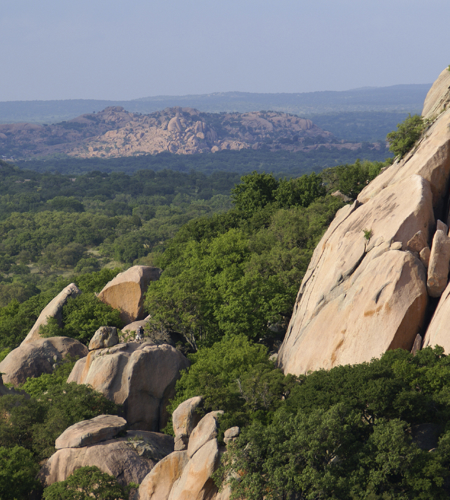

The Renewable Resources Extension Act (RREA) of 1978 designated federal funding for natural resource Extension comprehensive programs to sustain and address emerging renewable resources on forest and rangelands and to develop innovative projects that can be replicated with other entities and institutions. Texas A&M University, the state’s land-grant university, typically receives a portion of this funding, which is routed through Texas A&M AgriLife Extension Service to Texas A&M NRI, who administers the funds. The funding is used to support Extension Specialists and other personnel within both NRI and the Department of Rangeland, Wildlife and Fisheries Management (RWFM) in implementing programs and creating educational resources that address priority areas identified by RREA.
While the current RREA National Strategic Plan identifies 9 priority areas, we are focusing our efforts on the 5 that most closely align with the mission and vision of NRI and RWFM. These are:
Fish and Wildlife Habitat: Because more than half of the nation’s forests and rangelands are in private ownership, the actions taken by private landowners have a critical bearing on the nature, type, and extent of fish and wildlife habitat.
Generational Succession: Uncertainty about the future transfer of family forest or rangeland enterprises is becoming more commonplace. Increasingly, family natural resource enterprises are struggling with plans for succession to the next generation – whether the next generation is within the family or simply the next owner.
Wildfire Prevention: Wildfires threaten lives, destroy property, and disrupt agricultural production. Wildfires also alter the ecological functioning of native forests and rangelands as they increasingly occur beyond the natural ranges of frequency, intensity, and size due to both historical land-use policies and novel climatic conditions.
Landowner Engagement: More than half of the forests and rangelands in the United States are under private ownership. Thus, engaging landowners with natural resource professionals in decisions about their land is essential for addressing resource management concerns from forest health to local economies.
Public Awareness/Youth Engagement: Forest and rangeland resources are important to the economic and environmental well-being of both urban and rural communities. However, the public’s knowledge and in-depth understanding regarding production, sustainability, and the links between ecosystem services and social well-being are limited.
Key Programs
Several high-profile conservation programs have had their start in RREA funding. These are projects which have endured for years, reached hundreds of people and had statewide (or in some cases, nationwide) impacts. Notable examples include:
- Texas Master Naturalist Program: With 48 local chapters in 213 counties, TMN seeks to develop well-informed volunteers who bring natural resource education, outreach, and service to their communities in the state of Texas.
- Generation Next: A curriculum targeting new landowners, those who are inheriting land, or those who are looking to start a new agricultural operation on an existing ranch.
- Texas Land Trends: The Texas Land Trends project monitors the status and changes in land use, ownership size and land values of working lands.
- Texas Brigades: The Texas Brigades—which began with the Bobwhite Brigades—are a series of summer camps connecting youth with land management and conservation.
Current Project Leads
NRI is working with several specialists within Texas A&M University:
- Megan Clayton: Dr. Clayton is a Professor and Extension Range Specialist for the Texas AgriLife Extension and Research Center at Uvalde, TX. She developed Generation Next and is most recently responsible for Plant Party, a series of quarterly webinars focused on providing advanced plant training to agency professionals, volunteers, and land managers.
- Stacy Hines: Dr. Hines is an Assistant Professor and Extension Rangeland Habitat Management Specialist at the Texas A&M AgriLife Extension and Research Center at Corpus Christi, TX. She currently leads the Texas Plant Phenology Project (Triple-P), a train-the-trainer project that creates a network of citizen scientists with the skills to teach and coach Texas youth in plant identification and range contests.
- Shelby McCay: Shelby is a Project Coordinator at NRI who specializes in distance education and is responsible for the creation and development of Leopold Live!, an award-winning video series produced in partnership with the Selah, Bamberger Ranch Preserve. The series provides Texans with knowledge and resources to effectively conserve and manage wildlife species.
- Morgan Treadwell: Dr. Treadwell is a Professor and Extension Range Specialist at the Texas A&M AgriLife Research and Extension Center at San Angelo, TX. Her current interests include prescribed burning, integrated approaches for brush management, livestock grazing management, population plant ecology, and youth natural resources education. Most recently, she organized the Great Plains Fire Summit, a conference aimed at bringing together those who use, regulate, respond to, and live with wildland fire in the Great Plains and to share knowledge, build partnerships, and improve communication.
-
EWF-096: Habitat Requirements of Texas Quail
May 2017
M. Frank, K. Ruppert, J. Cathey



